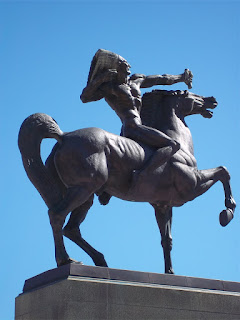For your first official blog assignment of the quarter, write a post in which you identify the values of your community, the township in which you live or a larger community in which you find national values. Remember, these posts are meant to be grounded in ongoing conversations, so make sure to cite a source with which you are in conversation. Also, since blogs are largely a visual medium, use as least one picture in your post. Remember the TED Talk we saw in which Titus Kaphar said that "painting is a visual language," and that "everything in the painting is meaningful, important and encoded."
What's true about painting is true of everything we see. What values are encoded in the world around us? How should we read those coded messages? This post should be finished by Monday, October 7th.













